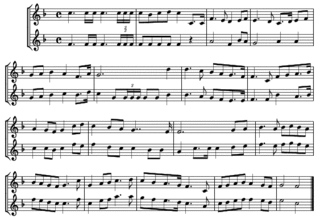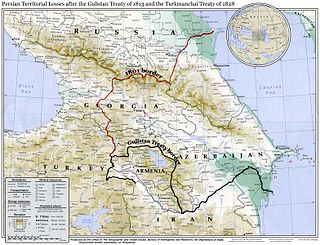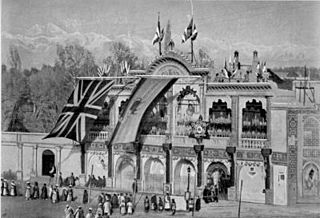Persian music may refer to various types of the music of Persia/Iran or other Persian-speaking countries:
Persian music may refer to various types of the music of Persia/Iran or other Persian-speaking countries:
The Persians are an Iranian ethnic group who comprise over half of the population of Iran. They share a common cultural system and are native speakers of the Persian language as well as of the languages that are closely related to Persian.
Persia, or Iran, is a country in Western Asia.
Persian traditional music or Iranian traditional music, also known as Persian classical music or Iranian classical music, refers to the classical music of Iran. It consists of characteristics developed through the country's classical, medieval, and contemporary eras. It also influenced areas and regions that are considered part of Greater Iran.

Fars Province, also known as ParsProvince as well as Persis and Persia, is one of the thirty-one provinces of Iran. With an area of 122,400 km², it is located in Iran's southwest, in Region 2, and its administrative center is Shiraz. As of 2011, Fars had a population of 4.6 million people, of whom 67.6% were registered as urban dwellers (urban/suburbs), 32.1% villagers, and 0.3% nomad tribes.

The National Anthem of the Islamic Republic of Iran is the national anthem of Iran. It was adopted in 1990, replacing the previous anthem used during the rule of Ruhollah Khomeini. It was composed by Hassan Riyahi, and the lyrics were written by Sayed Bagheri. It is the fourth official Iranian national anthem.

The Treaty of Gulistan was a peace treaty concluded between the Russian Empire and Iran on 24 October 1813 in the village of Gulistan as a result of the first full-scale Russo-Persian War. The peace negotiations were precipitated by the successful storming of Lankaran by General Pyotr Kotlyarevsky on 1 January 1813. It was the first of the series of treaties signed between Qajar Iran and Imperial Russia that forced Persia to cede or recognize Russian influence over the territories that formerly were part of Iran.
Persian may refer to:
The culture of Iran or culture of Persia is among the most influential in the world. Iran, also known as Persia, is widely considered to be one of the cradles of civilization. Due to its dominant geopolitical position in the world, it has heavily influenced peoples and cultures situated as far away as Southern Europe and Eastern Europe to the west; Central Asia to the north; the Arabian Peninsula to the south; and South Asia, East Asia, and Southeast Asia to the east. Iranian history has had a significant impact on the world through art, architecture, poetry, science and technology, medicine, philosophy, and engineering.

The Imperial Bank of Persia was a British bank that operated as the state bank and bank of issue in Iran between 1889 and 1929. It was established in 1885 with a concession from the Persian government to Baron Julius De Reuter a German–Jewish banker and businessman who later became a Christian and a British subject.

The Muslim conquest of Persia, also known as the Arab conquest of Iran, was carried out by the Rashidun Caliphate from 633 to 654 AD and led to the fall of the Sasanian Empire as well as the eventual decline of the Zoroastrian religion.
In the Western world, Persia was historically the common name used for Iran. On the Nowruz of 1935, Reza Shah officially asked foreign delegates to use the Persian term Iran, the endonym of the country, in formal correspondence. Subsequently, the common adjective for citizens of Iran changed from Persian to Iranian. In 1959, the government of Mohammad Reza Pahlavi, Reza Shah's son, announced that both "Persia" and "Iran" can be used interchangeably, in formal correspondence. However, the issue is still debated among Iranians.
The term Persian Church or Persian church may refer to:

Greater Iran refers to a region covering parts of Western Asia, Central Asia, South Asia, Xinjiang, and the Caucasus, where both Iranian culture and Iranian languages have had a significant presence and impact. Historically, this was a region long-ruled by the dynasties of various Iranian empires, under whose rule the local populace incorporated considerable aspects of Persian culture through extensive inter-contact, or alternatively where sufficient Iranian peoples settled to still maintain communities who patronize their respective cultures; it roughly corresponds geographically to the Iranian plateau and its bordering plains. The Encyclopædia Iranica uses the term Iranian Cultural Continent to describe this region.
Iranian hip hop, also known to as Persian hip hop, refers to hip hop music developed in Iran (Persia) and in Persian language. It is rooted in American hip hop culture, but it has sometimes incorporated local elements such as Iranian classical music and literature.
Persian Sea may refer to:

The Persian campaign or invasion of Iran was a series of military conflicts between the Ottoman British and Russian Empire's in the Iranian Azerbaijan region of neutral Qajar Persia, beginning in December 1914 and ending with the Armistice of Mudros on 30 October 1918, as part of Middle Eastern theatre of World War I. The fighting also involved local Persian units, who fought against the Entente and Ottoman forces in Persia. The conflict proved to be a devastating experience for Persia. Over 2 million Persian civilians died in the conflict, mostly due to the Armenian genocide by the Ottoman regime and Persian famine of 1917–1919, influenced by British and Russian actions. The Qajar government's inability to maintain the country's sovereignty during and immediately after the First World War led to a coup d'état in 1921 and Reza Shah's establishment of the Pahlavi dynasty.
Invasion of Iran may refer to several historical events, including:

Qajar Iran, also referred to as Qajar Persia, the Qajar Empire, Sublime State of Persia, officially the Sublime State of Iran and also known then as the Guarded Domains of Iran, was an Iranian state ruled by the Qajar dynasty, which was of Turkic origin, specifically from the Qajar tribe, from 1789 to 1925. The Qajar family took full control of Iran in 1794, deposing Lotf 'Ali Khan, the last Shah of the Zand dynasty, and re-asserted Iranian sovereignty over large parts of the Caucasus. In 1796, Agha Mohammad Khan Qajar seized Mashhad with ease, putting an end to the Afsharid dynasty. He was formally crowned as Shah after his punitive campaign against Iran's Georgian subjects.
Abbasi may refer to: